Are you navigating the complexities of a tenant's personal circumstances? Writing a letter can be an essential way to communicate your understanding and support. Whether it's regarding a change in payment plans or a request for flexibility, a clear and empathetic message can make all the difference. Dive into our comprehensive guide for practical tips and templates that can help you craft the perfect letter.
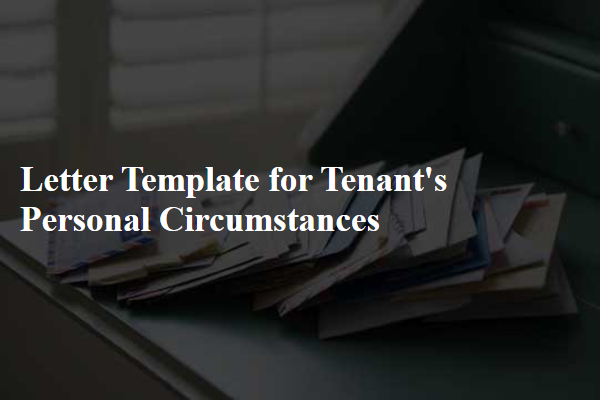
Clear and respectful tone
Difficult personal circumstances often impact tenants' living situations significantly. When tenants face events such as job loss, health issues, or family emergencies, these challenges may affect their ability to meet financial obligations timely. In instances of unexpected hardships, communication with landlords (property managers) is crucial to outline specific needs, such as rent adjustments or extensions. Providing documentation verifying circumstances (medical records, layoff letters) can enhance understanding and facilitate potential agreements for solutions. Establishing a respectful dialogue promotes a constructive environment in which both parties can discuss concerns, ensuring a just resolution aligned with their respective interests and responsibilities.
Specific personal circumstances
Personal circumstances can significantly influence a tenant's ability to meet rental obligations. For example, unexpected job loss due to economic downturns, such as the 2020 global COVID-19 pandemic, can lead to financial instability. Medical emergencies, particularly chronic illnesses requiring ongoing treatment, can place a burden on resources, complicating monthly rent payments in urban areas with high living costs, like New York City. Additionally, personal crises such as divorce or loss of a family member may contribute to emotional stress and potential housing instability. In cases where tenants need to relocate for family caregiving, this can further strain their financial situation, necessitating communication with landlords about potential solutions or temporary adjustments to lease agreements.
Request or purpose of letter
Due to personal circumstances, such as unexpected medical expenses arising from a serious health condition or significant family obligations requiring relocation, I am compelled to communicate my situation to my landlord. This letter aims to respectfully request either a temporary rent reduction or an extension for payment deadlines, considering the financial strain caused by these unforeseen events. My goal is to maintain open communication and seek an amicable resolution that acknowledges both my needs and the landlord's interests.
Supporting documentation or evidence
When tenants face personal circumstances that necessitate communication with landlords or property management, relevant supporting documentation can enhance their requests. Proof of income changes, such as termination letters or pay stubs reflecting reduced hours, can validate claims of financial hardship. Medical documents detailing health issues, such as hospital discharge summaries or treatment plans, may underscore a tenant's need for temporary accommodations. Legal documents, like restraining orders or court summons relating to personal matters, may provide the necessary context for special requests. Additionally, letters from social services, such as those from housing authorities in cities like San Francisco or New York, can lend credibility to appeals for assistance or modifications to rental agreements.
Contact information for follow-up
A letter template designed for tenants experiencing personal circumstances serves as a formal communication tool, allowing individuals to articulate their specific needs and situations clearly. Essential components of this template include a designated section for contact information, ensuring landlords or property managers can reach out effectively for follow-up discussions. The contact information should contain the tenant's primary phone number, email address, and alternative methods of communication, facilitating prompt responses and support. This structured format encourages transparency and dialogue, fostering a cooperative relationship between tenants and landlords during challenging times.

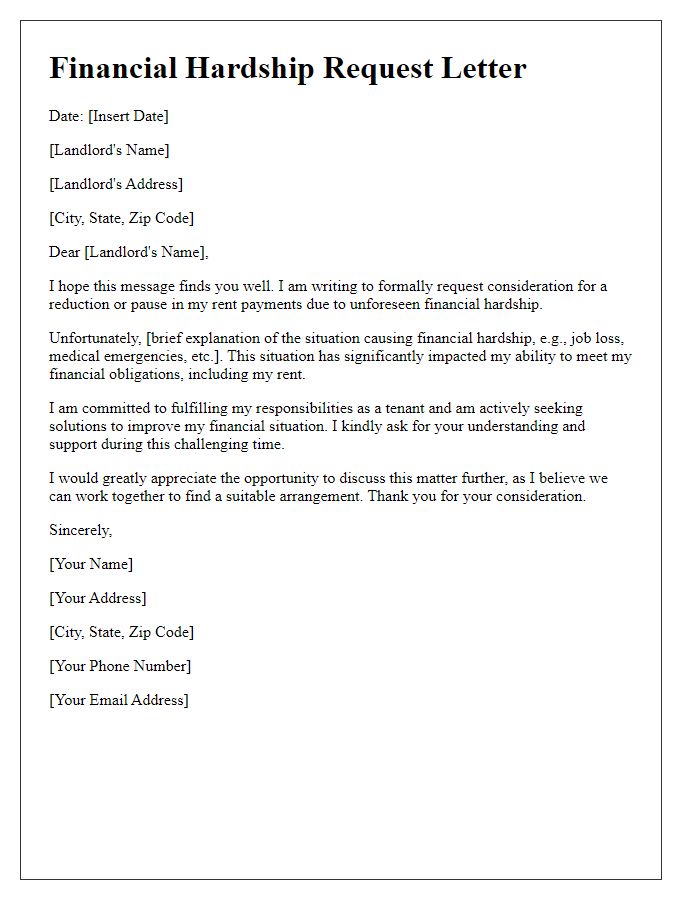
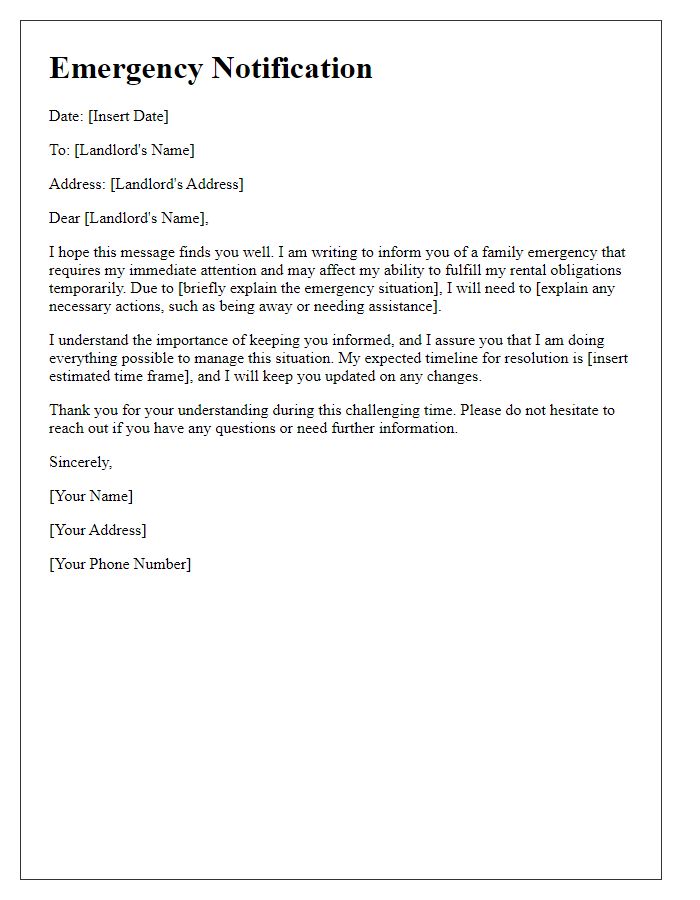
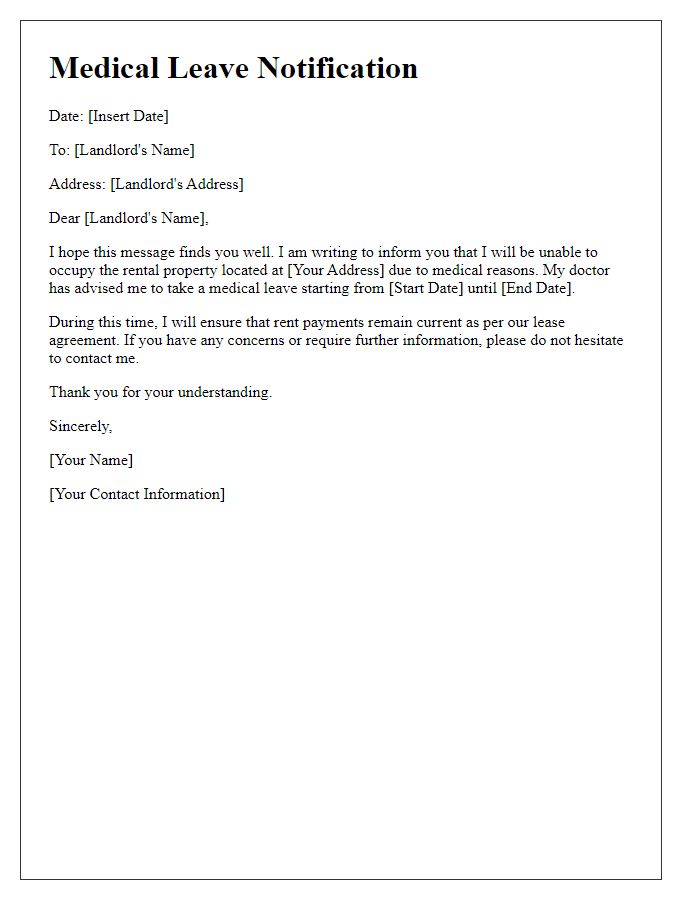
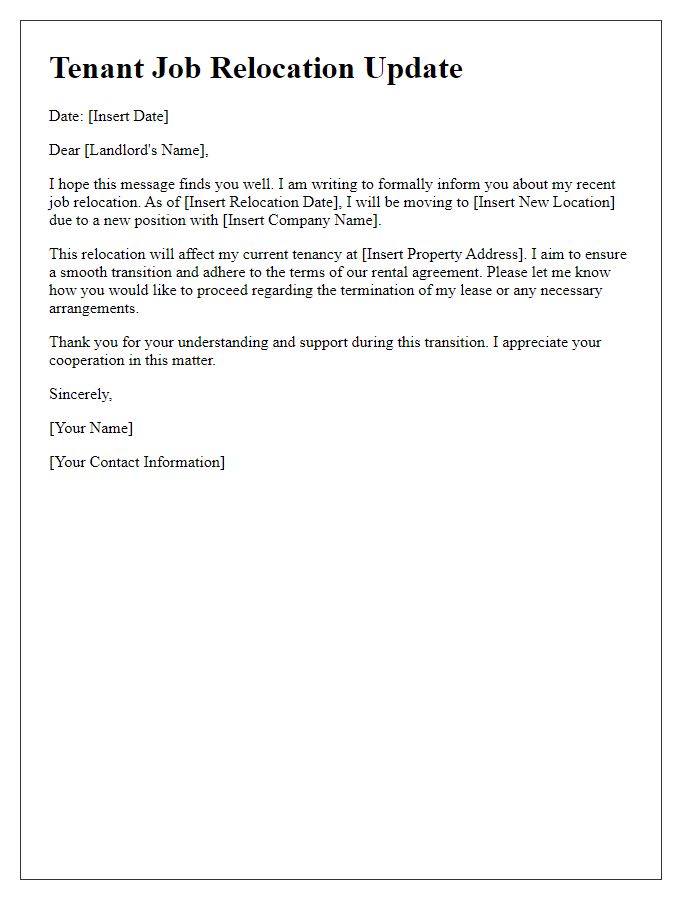
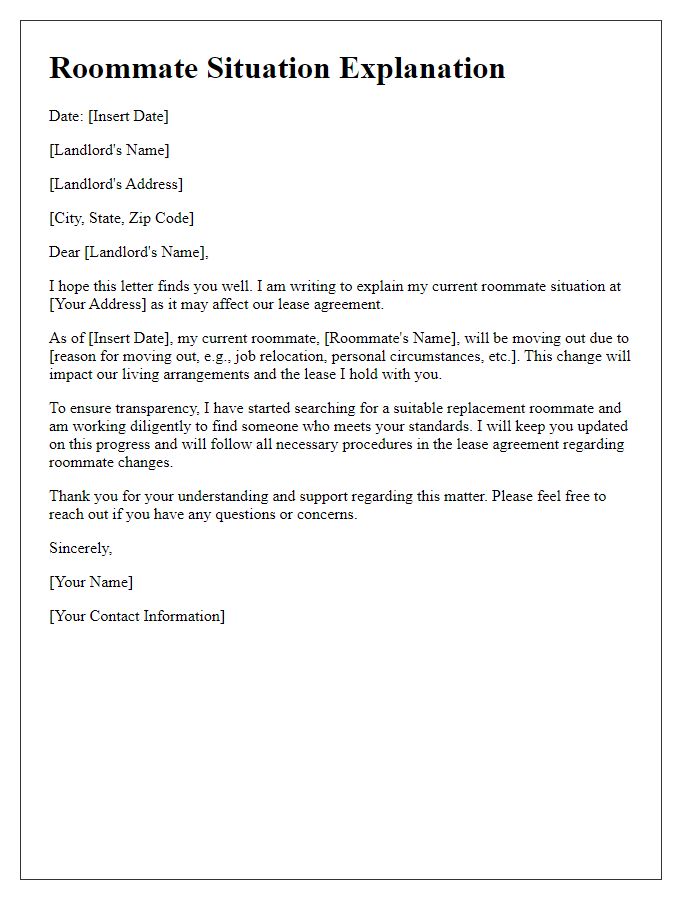
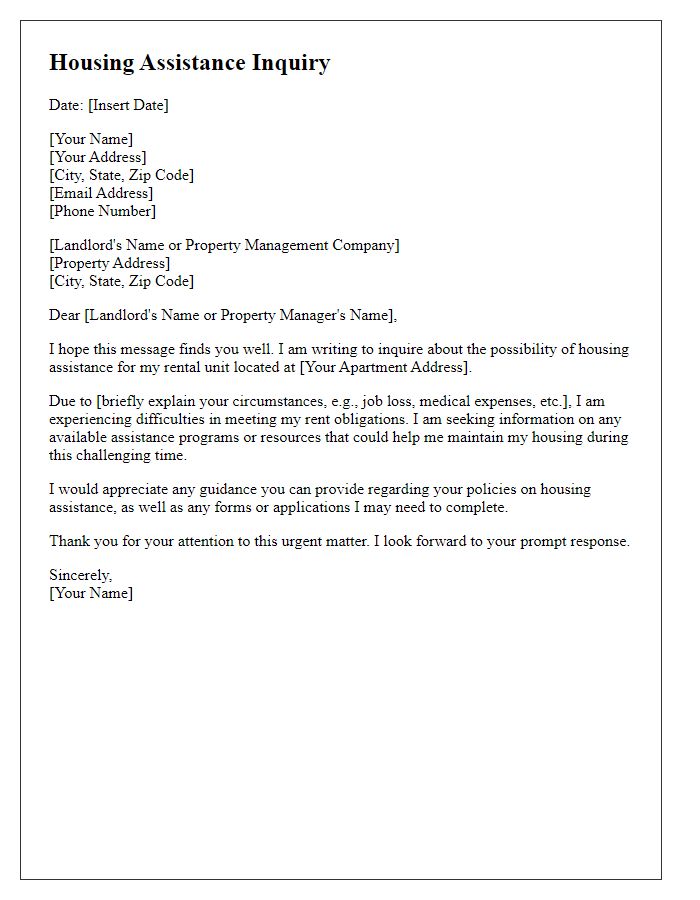
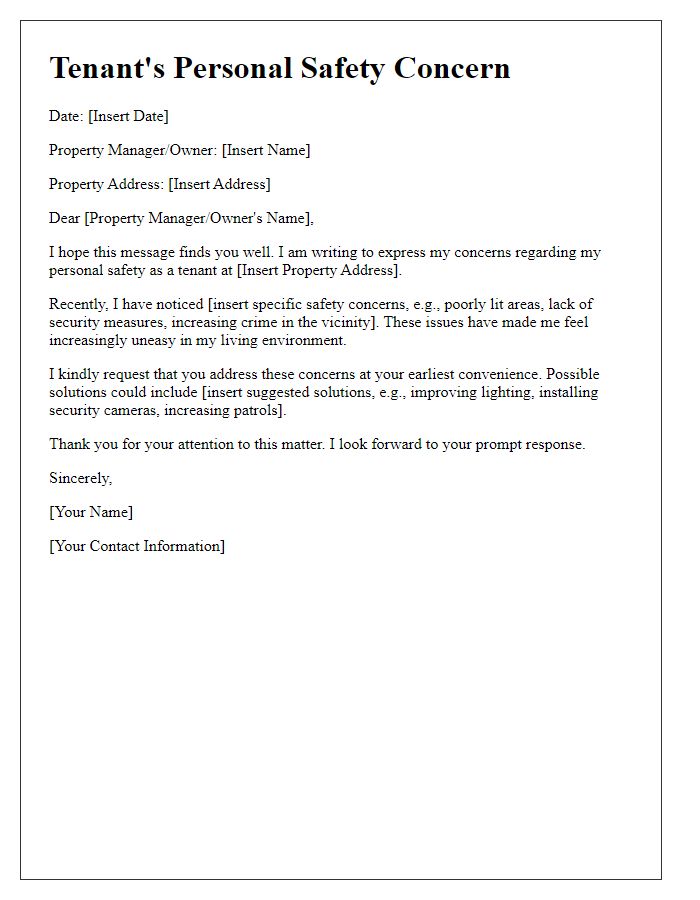
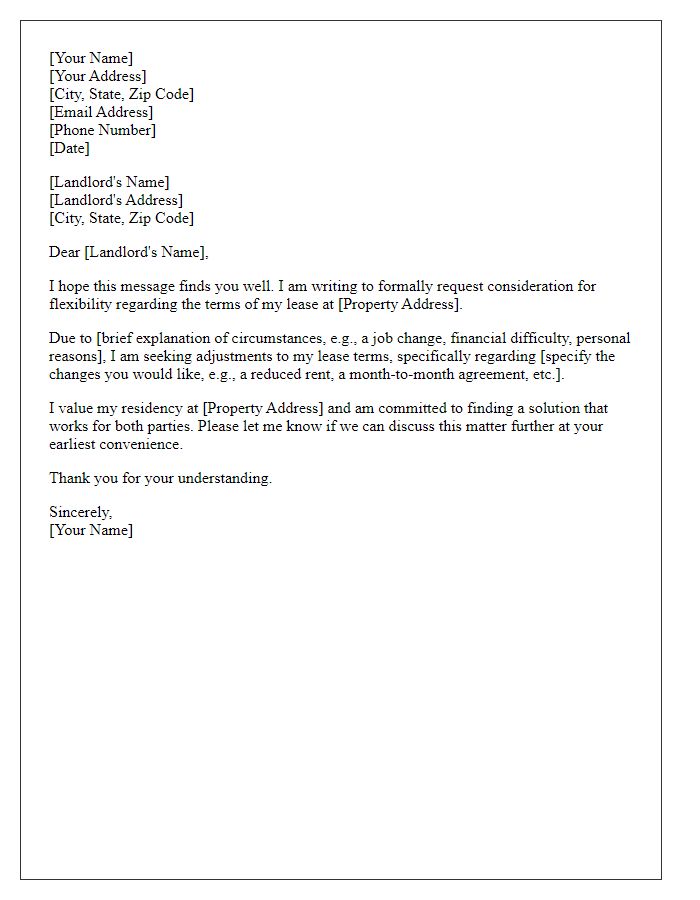
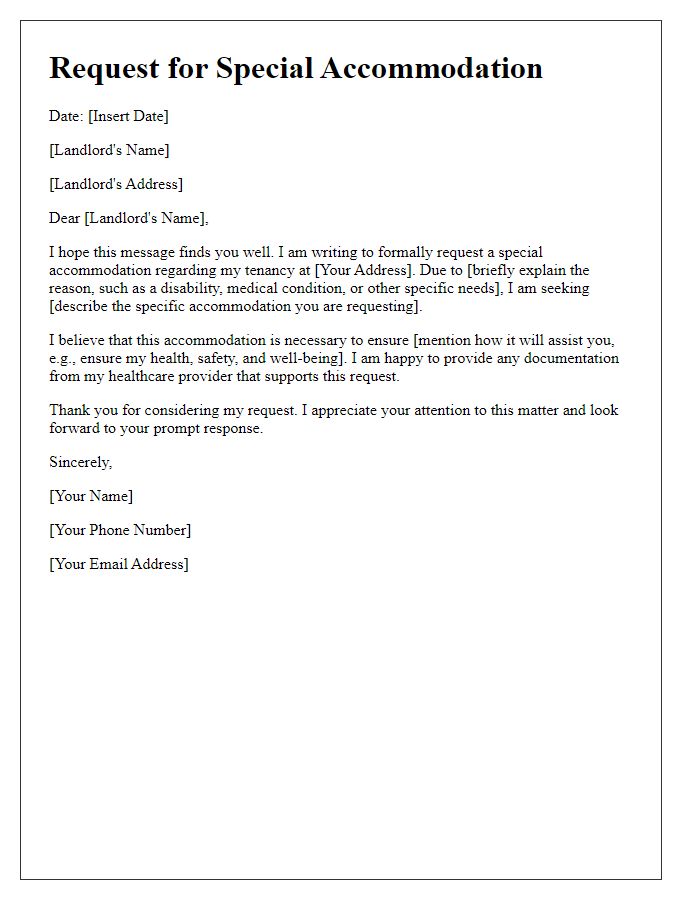
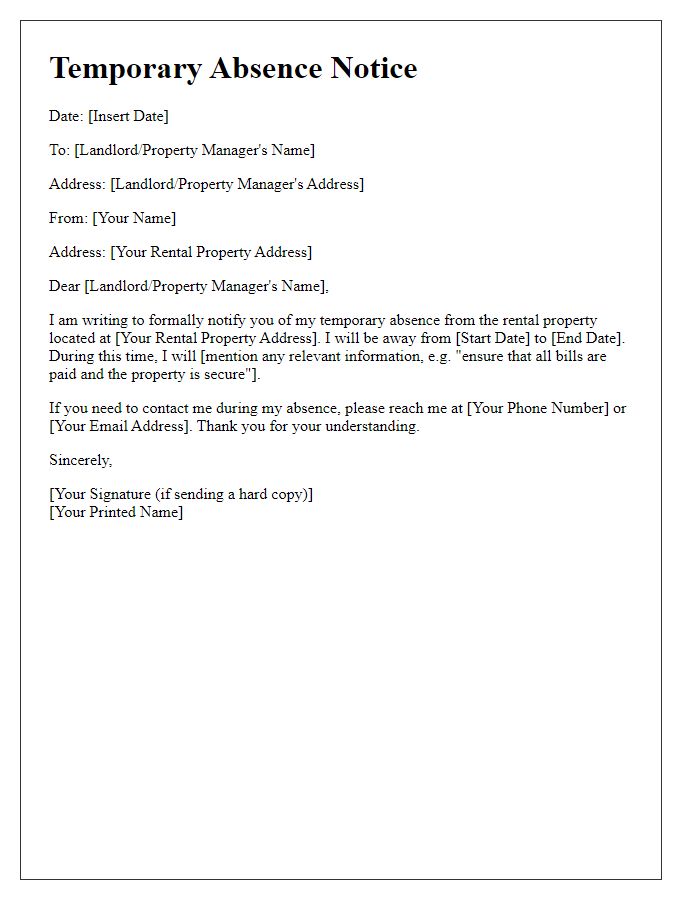

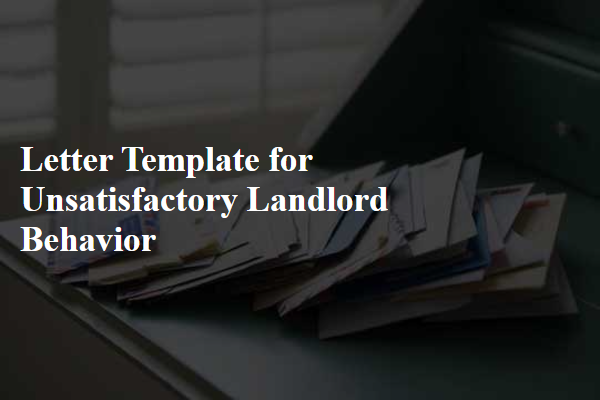
Comments